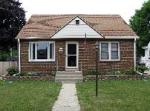 Just like any business, mortgage brokers have expenses to run their business. For reverse mortgage brokers, we have to cover the loan officer’s and staff salaries, administrative costs, business overhead including computers, office space, utilities, taxes, health insurance, marketing expenses, processing, underwriting, etc. (Note that processing and underwriting fees are generally additional fees on conventional loans but have to be included in the origination fee on FHA reverse mortgage loans.)
Just like any business, mortgage brokers have expenses to run their business. For reverse mortgage brokers, we have to cover the loan officer’s and staff salaries, administrative costs, business overhead including computers, office space, utilities, taxes, health insurance, marketing expenses, processing, underwriting, etc. (Note that processing and underwriting fees are generally additional fees on conventional loans but have to be included in the origination fee on FHA reverse mortgage loans.)
HUD regulates the fees that can be charged on the reverse mortgage including the origination fee. The guidelines are 2% on the first $200,000, 1% on the balance thereafter with a maximum of $6,000 and a minimum of $2,500.
For many years the origination fee was the only way reverse mortgage brokers received funds to cover their business expenses. In the last few years lenders started offering reverse mortgage brokers a Yield Spread Premium (YSP) or broker compensation, the fee lenders pay brokers/originating lenders for submitting loans to their company. Forward or conventional brokers have historically received the YSP.
On the Good Faith Estimate (GFE) all the fees need to be disclosed including the origination fee and the YSP. However mortgage brokers are not on the same page as the FDIC banks because the FDIC banks do not have to disclose the YSP on the GFE even though they are receiving the same compensation.
When borrowers are comparing fees between a mortgage broker and the FDIC banks, it looks like the FDIC banks are offering a better deal even though the compensation is the same. This confuses borrowers.
The mortgage brokers offer more personal service than the large FDIC banks. The large bank lenders often mail the application package and all the details are not even discussed with the senior borrowers. After the loan is closed seniors often have questions but when they have done their loan with the large banks, they can’t get the answers they need or want. We as reverse mortgage brokers often receive calls from borrowers who did their reverse mortgage with the large bank asking for explanations stating that they can’t reach their original loan officer and the bank’s customer service won’t/can’t answer their questions.
Mortgage brokers have the option of working with many lenders which means they have more options to offer our senior clients rather than just offering the bank’s options. Knowledge, experience, and customer service have a high value – it’s not always just about price. Don’t you consider quality and service when you are purchasing any product?
Recently lenders have been offering an option of ‘no origination fee’ on the HECM fixed rate reverse mortgage program. This sounds good on the surface but let’s look at the real implications.
Origination fees are the norm on forward loans. Borrowers are used to having to pay an origination fee to lenders. I have found that when the purpose of the origination fee and what it covers is explained to borrowers, they accept that we need to be paid for our services. In fact, at the application or at the closing they often want to ensure that I am being paid and don’t question the amount of the origination fee. It is a matter of communication so borrowers understand the fees and what they cover.
The ‘no origination fee’ is only available on the HECM fixed rate not on the adjustable rate program. With the reverse mortgage, the adjustable rate may often be the best option for a senior. To understand the differences between these options read “Which Is Best… A Fixed Rate or Adjustable Rate Reverse Mortgage?” So borrowers, if shown a comparison of fees between the fixed rate and the adjustable rate may choose the fixed rate ‘no origination fee’ even though the option may not be the best decision for their circumstances. Or they will question why they have to pay the origination fee on the HECM adjustable rate but not the HECM fixed rate. Or will seniors think that loan officers are hiding something because of the differences. In any case they are likely to be more confused.
The fixed rate reverse mortgage offers a much higher YSP than the adjustable rate. I have heard of some reverse mortgage loan officers pushing borrowers into the fixed rate so they can receive a higher commission/YSP. The ‘no origination fee’ option may have the same affect, loan officers pushing the fixed rate over the adjustable rate even though the adjustable rate may be the best option for a senior’s situation.
Generally the YSP is lower when the full HUD allowable origination fee is charged. Although at this time the secondary market is favorable so lenders can pay a higher YSP to the brokers meaning brokers will be compensated even if they offer no origination fees. However, this is only temporary and as we have seen in the past, this can change rather quickly. This could mean that if an origination fee was not initially quoted on the GFE, brokers are at risk of not being compensated through an origination or through the YSP. Where does this leave the reverse mortgage industry and/or the seniors?
Besides the ‘origination fee’ or ‘no origination fee’ being confusing to borrowers this could impact the service seniors receive. Additionally, borrowers will come to expect the ‘no origination fee’ option even when the market changes and doesn’t allow for the higher YSP/’no origination fee’ option.
There is talk of outlawing the YSP and actually this has already been done in some states. With no origination fee when the YSP goes away it could leave the brokers broke and out of business, only leaving the FDIC banks to control and/or offer the loans. Is this really the best for the reverse mortgage industry and/or the seniors?
 I believe the industry will be better served if the closing cost structure is left the same and the favorable secondary market is passed along to borrowers with a lower interest rate. While I understand the borrower won’t receive the benefit up front, in the long term they will receive savings through a lower interest rate. This is will keep things simpler, less complicated and less confusing.
I believe the industry will be better served if the closing cost structure is left the same and the favorable secondary market is passed along to borrowers with a lower interest rate. While I understand the borrower won’t receive the benefit up front, in the long term they will receive savings through a lower interest rate. This is will keep things simpler, less complicated and less confusing.
Are we in the reverse mortgage industry devaluing our worth with borrowers not paying an origination fee? I believe in general people recognize that they have to pay for products and services. The quote, “There’s no free lunch” comes to mind and I don’t think borrowers expect a free lunch to get a reverse mortgage. As I stated earlier, I have found once the details and reason of the origination fee has been explained borrowers accept it. We don’t need to devalue the services we provide by not having borrowers pay the origination fee.
Seniors and their families can already be confused by the details of the reverse mortgage especially when the program has not been explained to them in detail. In the future the confusion will increase. When borrowers who did a reverse mortgage with no origination fee tell their friends that they didn’t pay an origination fee, the new reverse borrower who will have to pay the origination fee due to market circumstances and/or the outlawing of the YSP, will likely not understand why they have to pay the origination fee.
Reverse mortgage borrowers are required to receive independent counseling. The counselors are to explain the details of the loan and the HUD allowable fees. Counselors are not to steer to lenders. However if the counselors don’t understand the secondary market (and my experience with the counselors says they don’t understand this aspect of the loans) in their explanation of fees they could be adding to the confusion of the seniors as well as they will be steering borrowers to lenders who don’t charge the origination fee.
While in the short run the ‘no origination’ fee may look like it’s good for the industry, all of the changes that are happening are adding to the fear of reverse mortgages and the stalemate of the industry. The ‘no origination fee’ is just one more change contributing to this. When seniors are too afraid to do the reverse mortgage that could benefit them, it is not good for seniors and not good for the reverse mortgage industry.
And as we have seen in the past with the one-percent margin, what looks good today can turn out to be a disaster tomorrow both to the reverse mortgage industry and to the seniors themselves.
© 2010 Beth Paterson, Beth’s Reverse Mortgage Blog, 651-762-9648
This material may be re-posted provided it is re-posted in its entirety without modifications and includes the contact information, copyright information and the following link: http://wp.me/p4EUZQ-ij
Related articles:
Blog posts’ information is current as of date post published, program is subject to change in in the future. Contact us for current information, 651-762-9648.
This site or the information provided is not from, or approved by, HUD, FHA, or any US Government or Agency.
 This past week I had the pleasure of being a guest on the radio show, “The Unexpected Caregiver” hosted by Kari Berit. We covered the basics of reverse mortgages to clarify the facts and share some stories of Minnesota reverse mortgage borrowers and how they have benefited from a reverse mortgage. Rather than writing this blog post I thought I’d share the link to the show for your listening: The Unexpected Caregiver – The Reverse Mortgage Basics with Beth Paterson – Part 1
This past week I had the pleasure of being a guest on the radio show, “The Unexpected Caregiver” hosted by Kari Berit. We covered the basics of reverse mortgages to clarify the facts and share some stories of Minnesota reverse mortgage borrowers and how they have benefited from a reverse mortgage. Rather than writing this blog post I thought I’d share the link to the show for your listening: The Unexpected Caregiver – The Reverse Mortgage Basics with Beth Paterson – Part 1


















